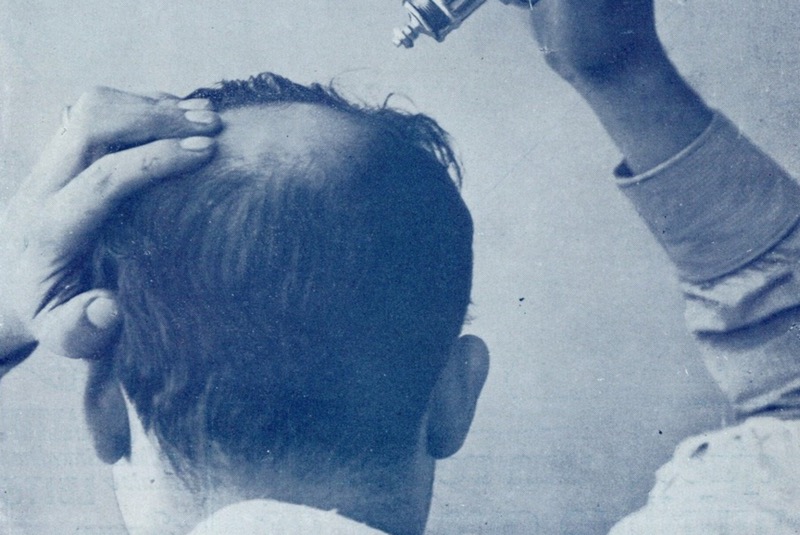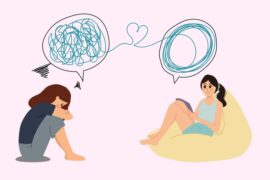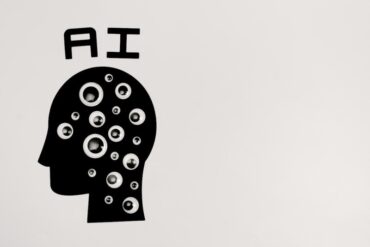Lizzo’s 2016 empowerment anthem ‘Good as Hell’ begins with the lines, “I do my hair toss, check my nails, baby, how you feeling? Feeling good as hell!” The hair toss is a global gesture of confidence. The way a person’s hair looks is so integral to their self-image that the phrase “bad hair day” has entered our daily lexicon.
What does your hair say about you?
A person’s hair acts as their social identifier. “It helps us determine age, economic, intellectual, and marital status, as well as religious affiliations.” Hair can also be a tool of rebellion. This is most evident in the avant-garde hairstyles of punk artists.
For women, especially, the length of their hair is a statement in itself. It is not too surprising, then, that many women find comfort in going bald or cutting their hair extremely short.
The Eurocentric standard of beauty recognises long, straight, and glossy hair as beautiful. Black women have challenged this assumption for ages as it is framed almost in binary opposition to black hair. This only affirms the importance of one’s hair for one’s self-image.
Black women have fought against the vilification of their hair and promoted radical self-acceptance. They have started haircare brands specifically aimed at people with textured hair. These brands, however, make up a small part of the gargantuan haircare industry.
The rise and fall of Olaplex
If you have tried to find a solution for hair fall online, you have likely heard of the brand Olaplex. For those who have not, Olaplex offers bond-building haircare. They offer shampoos, conditioners, and deep treatments designed to strengthen and repair hair from the inside out.
Under CEO JuE Wong, the company’s net sales have increased from $148.2 million in 2019 to $283.3 million in 2020. In less than ten years, Olaplex has become the number one independent haircare brand.
In February 2023, twenty-eight women in California sued Olaplex. They claimed that using Olaplex products had caused their hair to fall out. In response, Olaplex released a statement that read:
We want to reassure our community of Professional stylists, customers and fans that they can continue to use our products with confidence. To demonstrate this, we have publicly released test results from independent third-party laboratories, going above and beyond industry standards. We are prepared to vigorously defend our Company, our brand, and our products against these baseless accusations.”
But the damage was done. Olaplex took a serious hit to its reputation. This came at a time when sales and growth were slowing down for the company. The days of attracting high-profile endorsements by the likes of Kim Kardashian may be behind them.
This would lead one to believe that justice has been served. Sadly, when it comes to cosmetic products, the consumer can never really be the winner. For those twenty-eight women, Olaplex ended up creating the very problem they sought to solve. It is one thing for a product not to work and leave you disappointed. The situation is different when using a product leaves you worse off than before.
Hair loss is more than a cosmetic problem
Gone are the days when hair fall was an issue to be tackled at an older age. Pollution, stress, and unhealthy eating habits have made hair fall a common problem among the youth.
There were also reports of people losing hair after they got COVID. The virus is not known to attack hair follicles, which has led experts to believe this is a physiological response to the trauma caused by COVID. Dr. Maryanne Senna, MD, a dermatologist and instructor at Harvard Medical School explains how hair fall can impact an individual’s mental health. She says:
Depending on the cause and degree of shedding, hair loss can feel shocking… If it’s acute hair loss, and suddenly you’re shedding tonnes of hair and you have no clue why, seeing clumps that come out all at once can be very traumatic…Or some people who have hair loss on and off for a long period of time may feel frustrated.”
There was a time when, unless you were a celebrity, a trip to the salon was enough in the name of hair care. Today, owning a shampoo, a conditioner, and a hair serum is considered the bare minimum when it comes to hair care.
Those who have frizzy hair keep an additional frizz-free serum. Those who have dandruff use a dandruff protection mask on their hair after washing it. It seems like every day, there are new products tackling new problems that we did not even know we had.
Buying a hair product at a salon is like buying clothes in a mall. The salesperson will demonstrate all its benefits, and you may even try this product. But it will not be the same when you try it at home. This is one of the primary reasons Olaplex took off in the way it did.
Users were able to get salon-like hair at home. However, this begs the question, what even is “salon-like hair?” In the name of tackling hair loss, the haircare industry has trained us to expect “salon-like hair” on a daily basis. But we do not go to the salon daily, do we?
There is nothing wrong with taking care of your hair. There isn’t even anything wrong with wanting to prevent hair loss or combat it. However, we must not let the haircare industry redefine our expectations of our own hair.
-30-
Copyright©Madras Courier, All Rights Reserved. You may share using our article tools. Please don't cut articles from madrascourier.com and redistribute by email, post to the web, mobile phone or social media.Please send in your feed back and comments to [email protected]











